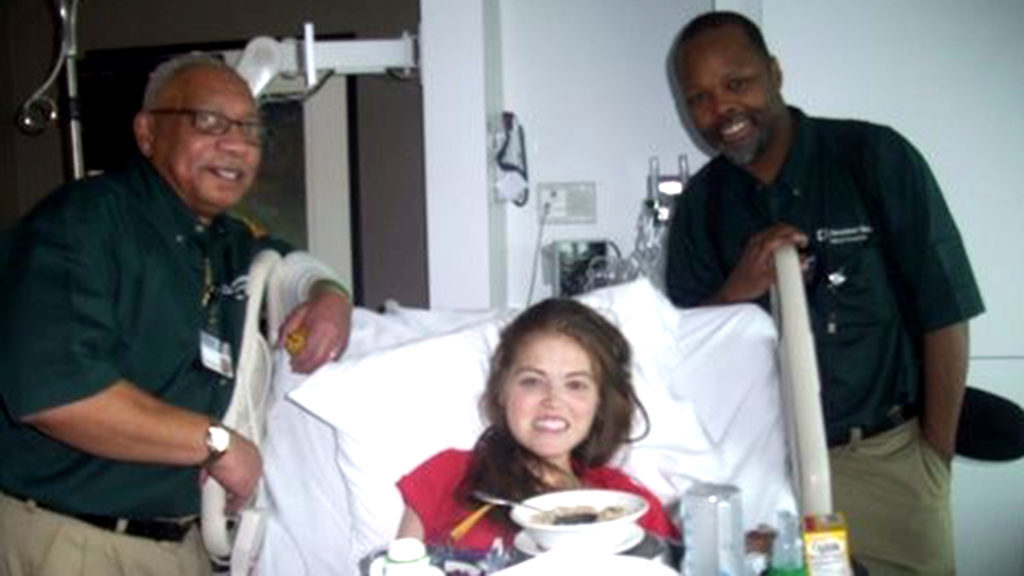
Alfred Deller sings Purcell’s “From rosy bow’rs” in an undated film clip:
(This is the latest in a series of arts- and history-related videos that appear in this space each Monday, Wednesday, and Friday)
Terry Teachout on the arts in New York City

Alfred Deller sings Purcell’s “From rosy bow’rs” in an undated film clip:
(This is the latest in a series of arts- and history-related videos that appear in this space each Monday, Wednesday, and Friday)

“The things of men will break—whether weapons, machines or bodies. When that time comes, know what you believe. It will be the only thing that keeps you going.”
John R. Allen (quoted in Chris Seiple, “Stage 4 Cancer and a Brain Tumor: Five Simple Lessons for How I’ve Learned to Live in the Present,” Washington Post, April 4, 2019)

I’ve been so horrifically busy throughout the past couple of weeks that I forgot to mention that the twenty-ninth episode of Three on the Aisle, the twice-monthly podcast in which Peter Marks, Elisabeth Vincentelli, and I talk about theater in America, is now available on line for listening or downloading.
This episode consists of just the three of us, talking about what we’ve seen and thought of late. Here’s an excerpt from American Theatre’s “official” summary of the proceedings. “They” is “us”:
They start this week talking all things Lear, namely the revival currently playing on Broadway starring Glenda Jackson as the embittered monarch. They talk about where the production succeeded, where it failed—and why they’re all sick of the play. They then perform a bittersweet postmortem on The Band’s Visit, which recently closed. Then they go into their mailbag to talk about playwrights getting billing above their own work, when it’s okay to read the book of a play you’re reviewing, and the origins of 3OTA.
Finally, they go around the table to talk about Mrs. Murray’s Menagerie from the Mad Ones at Ars Nova, Life Sucks by Aaron Posner, and Irish Rep’s revival of Juno and the Paycock.
To listen to or download this episode, read more about it, or subscribe to Three on the Aisle, go here.
In case you’ve missed any previous episodes, you’ll find them all here.
* * *
It was inevitable that “Tootsie,” Sydney Pollack’s much-loved 1982 romcom about an out-of-work actor who dresses in drag to nail a soap-opera role, would sooner or later be turned into a big-ticket commodity musical. The good news is that the job has been done more competently than anyone had any reason to expect…

Soaps having long since become all but extinct, Michael Dorsey (Santino Fontana) is now trying to get cast as the nurse in an inept musical version of “Romeo and Juliet.” Otherwise, Robert Horn’s book tracks the screenplay fairly closely, with a not-so-surprising pre-intermission surprise (you’ll see it coming a mile off) and a stiff dose of eat-your-kale #MeToo-style feminism stirred in to keep the progressives comfy.
The score is by David Yazbek (lately of “The Band’s Visit”), a craftsman of the top rank whose songs, all of which are adroitly slotted into the book, propel the plot in classic school-of-Hammerstein style….
The catch, of course, is that “Tootsie” doesn’t need to be a musical: Like “Groundhog Day,” it’s perfect as is. In particular, the Larry Gelbart-Murray Schisgal screenplay is unimprovable, a fact driven home every time you hear a punchline spoken onstage that was derived from the movie…
I would absolutely have paid to see Sarah Stiles sing “What’s Gonna Happen,” the show-stopping comic number about her neurotic insecurities (“I know what’s gonna happen/Don’t tell me that I don’t/And don’t say that I’ll rise/To the occasion, cause I won’t”) that is the freshest thing about this new version….
* * *
Read the whole thing here.Sarah Stiles sings David Yazbek’s “What’s Gonna Happen” (from the stage version of Tootsie) at BroadwayCon 2019:

“Among the calamities of war, may be justly numbered the diminution of the love of truth, by the falsehoods which interest dictates, and credulity encourages.”
Samuel Johnson, The Idler (November 11, 1758)

John Lennon and Chuck Berry perform “Memphis, Tennessee” and “Johnny B. Goode” and are interviewed on a 1972 episode of The Mike Douglas Show:
(This is the latest in a series of arts- and history-related videos that appear in this space each Monday, Wednesday, and Friday)

“There are two ways to slide easily through life: to believe everything or to doubt everything; both ways save us from thinking.”
Alfred Korzybski, Manhood of Humanity

I vaguely recalled having read about her horrific experiences, but knew nothing of the details. Now I know all about them, and I find myself in awe of her, not just because of her indomitable determination but because it turns out that in addition to being an excellent singer, Ms. Tillemann-Dick is also a very fine writer. “The Encore” is one of the best books I’ve ever read about the effects of chronic illness on the human spirit. Most of us, I suspect, like to think that we’d rise to a difficult occasion if forced to do so, but rarely are we put to the test. Ms. Tillemann-Dick was, and she faced it with a courage that I can scarcely begin to fathom.
Ms. Tillemann-Dick was diagnosed in 2004 with pulmonary hypertension, an extremely rare and devastating disease of the lungs. A 20-year-old music student, she’d set her sights on an operatic career, and she had every reason to believe that her dream would come true. Instead, her doctor told her to stop singing at once, warning her that “those high notes are going to kill you.” PH, as it’s known to those who have it, is debilitating, incurable and, if left untreated, fatal. But she refused to give up, telling herself, “I just want to live—really live—for as long as I have left.”
A second, more enlightened specialist encouraged her to keep on singing, and she continued to study and perform for as long as her waning health permitted. Palliative treatments kept her going until 2009, when it finally became clear—as is always the case with end-stage PH—that the only thing that would save her life was a double-lung transplant. Fortunately, she survived the painful operation, and to the amazement of her doctors, she started singing in public again a year later, something that no one but Mrs. Tillemann-Dick had thought possible….
Our hearts go out to Yonatan Doran, Charity’s husband. May he find comfort in the knowledge that her life was a blessing and an inspiration.
One last thing: if you haven’t signed up to be an organ donor, please do so now, and encourage your friends to do likewise. Charity’s life was lengthened to noble effect because two people who never knew her did so.
* * *
A 2011 TED talk by Charity Tillemann-Dick:
An ArtsJournal Blog